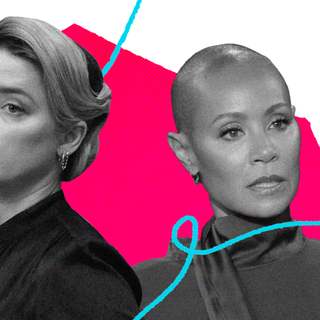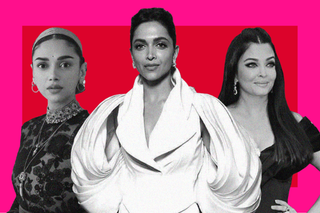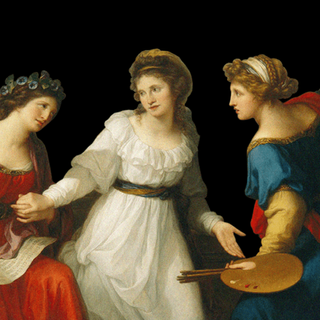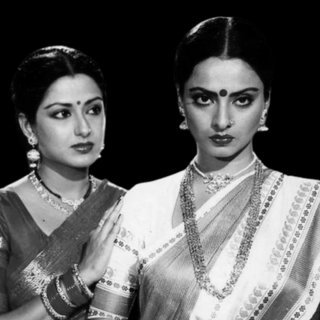
Our Obsession With Every Cannes Look Reveals Our Need for Validation From the West
The obsessive dissection of the looks perpetuates a ‘perfect beauty’ ideal while reflecting our anxiety about how the West perceives us.

Fashion has had multiple moments of harsh scrutiny over the last week. For social media users in India, the Cannes Film Festival was less about the cinema than it was about how Indian celebrities were styled on the red carpet and what impressions they made internationally. Here is a brief summary of the “expert” analysis that has thus emerged: Deepika Padukone’s Louis Vuitton dress had a “towel” aesthetic; her eyeliner accompanying the Sabyasachi saree on the red carpet made her look like a “raccoon”; Aditi Rao Hydari’s Cannes debut in a white saree “too simple”; Aishwarya Rai Bachchan’s look in a black Dolce and Gabbana gown seems as if it was put together by a child, specifically her daughter. Influencers like Niharika NM, Masoom Minawala Mehta, and Tarini Peshawaria weren’t spared netizens’ judgment either.
The criticism is not unfamiliar; every red carpet inspires a wave of sartorial butchering. Yet, the heated deliberation of what Indian celebrities are wearing some thousand miles away drew a grim conclusion: people had gone too overboard for an aesthetic never specified.
Sample this critique: “Despite occupying a sizeable carpet space, we’ve been extremely unimpressive when it comes to owning that same space… Larger-than-life sculpted gowns, elaborate trails, and too-much tulle – opulence is the memo for the Indian celebs this year, it seems,” notes an article on Firstpost, adding that “there’s a fine line between opulence and crowdedness, and this year’s looks were treading on the latter.”
The obsessive dissection of every red carpet look is riddled with complexities about power, perfection, and insecurity. At one level, incessantly bashing someone for a “look” echoes a desire to see “perfect beauty,” one that can apply to every persona we see at these events. What’s more specific, and indeed jarring, about the Indian response is a gnawing sense of anxiety — about how these figures, and by extension us, are being perceived by the colonial West.
Related on The Swaddle:
India’s Miss Universe Victory Shouldn’t Take Away Focus From Beauty Contests’ Toxic Culture
It is rather ironic, then, that Firstpost’s article went on to state: “75 years since the independence, there’s still an insecurity that shackles us, and it shows blatantly. Rai’s desire to stand out and fit in at the same time, was what went wrong the most… Moving on, to Deepika Padukone, a jury member this year, who once again like Rai, fell prey to two things. One, the need to impress, and the insecurity of not being seen as an equal on the global stage, and two, the desire to increase the drama quotient, in order to fulfill the first need.” Irrespective of whether or not the looks curated by the actors’ teams reveal our collective need for western validation, the article certainly does — especially when it alleges that a “proud moment for India” was ruined by Indian celebrities’ over-the-top styling.
The Indian presentation, if there can be such a thing, at Cannes this year was one enclosed in drama — reflected not just in designer dresses, but also in makeup choices. Our ire against maximalism suddenly, though — after praising Blake Lively’s and Natasha Poonawalla’s dramatic gilded looks at the Met Gala just last month — is that white women like Anne Hathaway and Julia Roberts opted for comparatively minimalist looks at Cannes this year.
This suggests that alongside the urge to impress the western world, we aspire to be like them too. It’s, perhaps, an extension of the same Euro-aesthetic worship that has led our movie industry to cast white women over their Indian counterparts in film after film, music video after music video.
It is, perhaps, our history of being colonized for close to a century that often leads us to seek western approval in unspoken ways — like landing roles, no matter how small, in Hollywood movies being considered a feat or a foreign degree prima facie being deemed more valuable than an Indian one. So, then, the social media critique isn’t entirely, if at all, about the sartorial choices of any of the celebs. It’s about our desire to “match” those in structural power — in a show of tacit subservience.
Related on The Swaddle:
Beauty Norm Rebellions in 2020 Redefined Beauty — But Didn’t Eliminate It
Not to mention this trend of scrutinizing every look also fuels an unhealthy obsession to constantly look “perfect.” Case in point: online discussions on how the sweat beads on Padukone’s face were spoiling her look. This creates a rather toxic archetype in a world we’re already buried under impossible beauty standards.
“There’s a thin line between wanting to look pretty and becoming obsessed with perfection,” reads a 2014 article in Cosmpolitan, explaining that “for some women, it creates a compulsive obsession with looking perfect … the feeling like something’s always a little off. Call it ‘beauty dysmorphia’.”
A few days back, a video featuring actor Tamannah Bhatia — where she’s seen joining her hands before a portrait of former Hollywood superstar, Audrey Hepburn, to seek her blessings before walking the red carpet — was mocked online. “Cringe” as it may have been, in light of the sheer absurdity of our collective obsession with dissecting every red carpet appearance of Indian celebrities at a film festival, Bhatia’s video has emerged as an oddly sharp satirical comment on our priorities.
When mainstream media chooses to fixate on the impression Indians made through their fashion statements at a film festival — not a runway — we obviously have a problem. Especially so, when cinema — which is, by definition, the point of any film festival — isn’t receiving even a fraction of that focus. No wonder then that threads like “Hina Khan is serving today!” or “Urvashi Rautela’s look was such a fail!” overshadowed the presence of Pa. Ranjith, a critically acclaimed Indian filmmaker from a marginalized background, at the reputed international festival.
Devrupa Rakshit is an Associate Editor at The Swaddle. She is a lawyer by education, a poet by accident, a painter by shaukh, and autistic by birth. You can find her on Instagram @devruparakshit.
Related


It’s Okay: To Take Sides in Family, Friend Disputes
